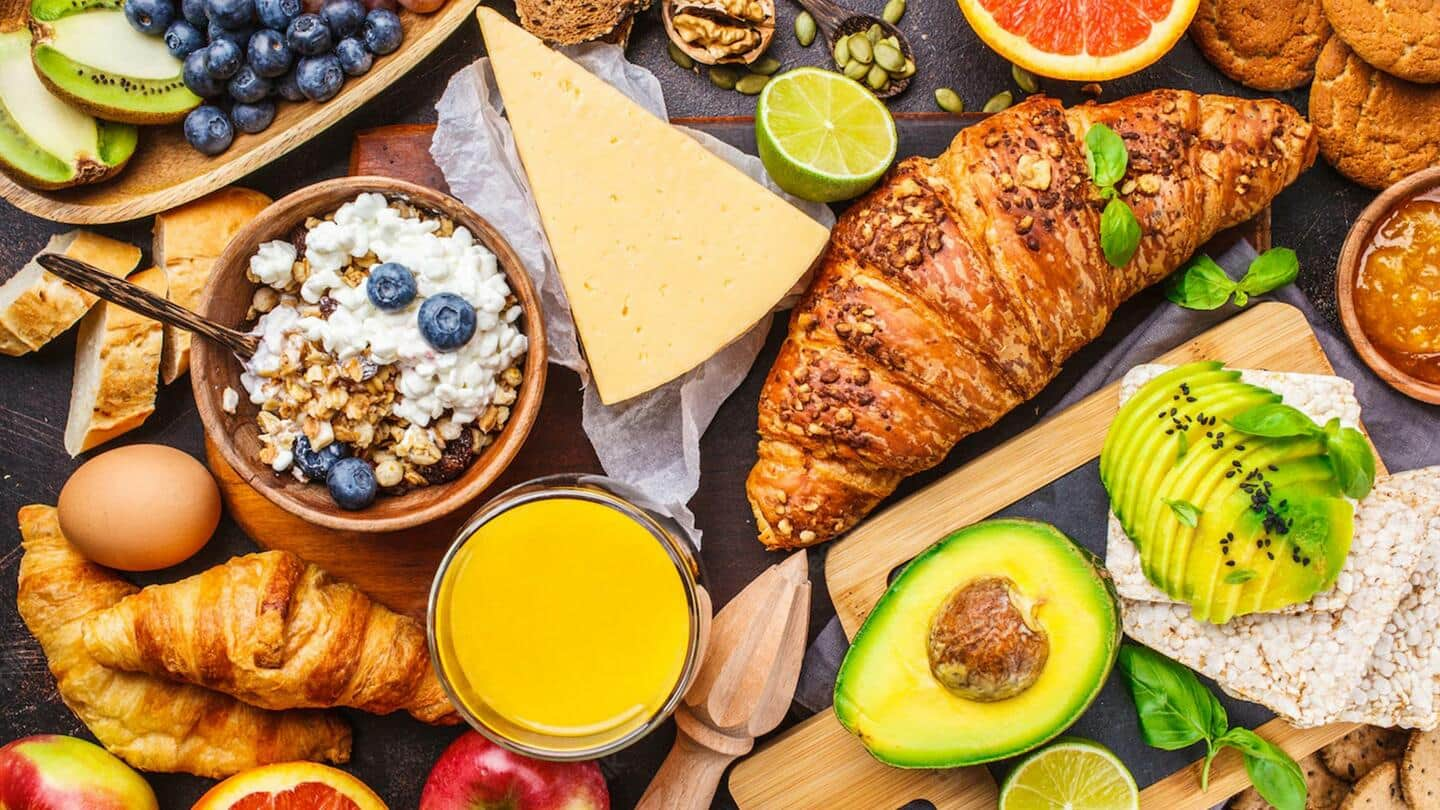
How to attain maximum nutrition from meals
What's the story
All foods have a variety of nutrients that keep us healthy; it is how we take them that makes all the difference.
A balanced diet with adequate nutrients includes proteins, fats, carbohydrates, vitamins, minerals, and lots of water.
To understand how you can attain the maximum nutrients for optimal physical and mental well-being, we got in touch with Aman Puri, founder of Steadfast Nutrition.
Eat in combo
Pair nutrient-rich foods
Pairing foods helps absorb nutrients. Combine fatty foods with those rich in fat-soluble vitamins and antioxidants like lycopene.
Mix olive oil and salad - the fat in olive oil help absorb the beta-carotene in red bell peppers.
Combine non-heme iron-rich foods such as fortified cereal, rice, black beans, and eggs with citrus fruits and vegetables since vitamin C improves the absorption of non-heme iron.
Carbs & proteins
Include more complex carbohydrates and proteins
Carbohydrates provide sustained energy and nourishment.
They include whole grains and seasonal fruits and vegetables.
Combine whole wheat flour, jowar, bajra, and ragi with wheat pasta, quinoa, and oats to delight your palate.
Proteins help maintain muscle mass and repair tissue. Add at least one source of protein such as eggs, chicken, fish, dairy products, and pulses to every big meal.
Fats
Choose good fats
Consume good fats such as omega-3 and omega-6 fatty acids.
You get these fats in nuts and seeds, including almonds, walnuts, sesame seeds, flax seeds, and sunflower seeds.
Use healthy oils like coconut oil, mustard oil, sesame oil, or ghee for cooking at high temperatures.
Avoid pre-heated oil since it's harmful to health and may release free radicals into the body.
Basic essentials
Include vitamins and minerals
Have foods rich in vitamins and minerals. To do so, include more fresh vegetables and fruits in your meals.
They improve immunity and maintain growth and development.
Carrots are a good source of vitamin A, which is good for eyesight.
Fenugreek leaves are rich in iron, which helps prevent anemia.
Guava and orange are good sources of vitamin C, which helps boost immunity.
Spices
Include spices and avoid cooking on non-stick surfaces
Spices and herbs have antioxidant, anti-inflammatory, anti-bacterial, and anticarcinogenic properties.
Cinnamon and fenugreek seeds help lower blood sugar levels by reducing insulin resistance.
Avoid cooking on nonstick surfaces. Teflon has been linked to various malignancies and tumors.
Cast iron is naturally nonstick once it has been seasoned and has the added benefit of boosting the iron content of food.
Hydration
Keep yourself hydrated
Our body needs water to function well.
Dehydration can cause fatigue, dizziness, constipation, kidney stones, and impact brain function.
Water increases satiety and boosts metabolism, which helps in weight loss.
It also keeps body temperature regulated, and joints lubricated, prevents infections, delivers nutrients to cells, and keeps organs functioning properly.
Drink at least seven to eight glasses of water every day.
Lifestyle
Finally, adopt a healthy lifestyle
Nutrient absorption may be adversely impacted by unhealthy behaviors and lifestyle choices.
Make sure there are no distractions while eating; chew your food carefully since it improves digestion.
To keep your metabolism healthy, try eating at the same time every day.
Avoid liquor since it reduces stomach enzymes.
Avoid excess tea since it can inhibit the absorption of vitamins and minerals.